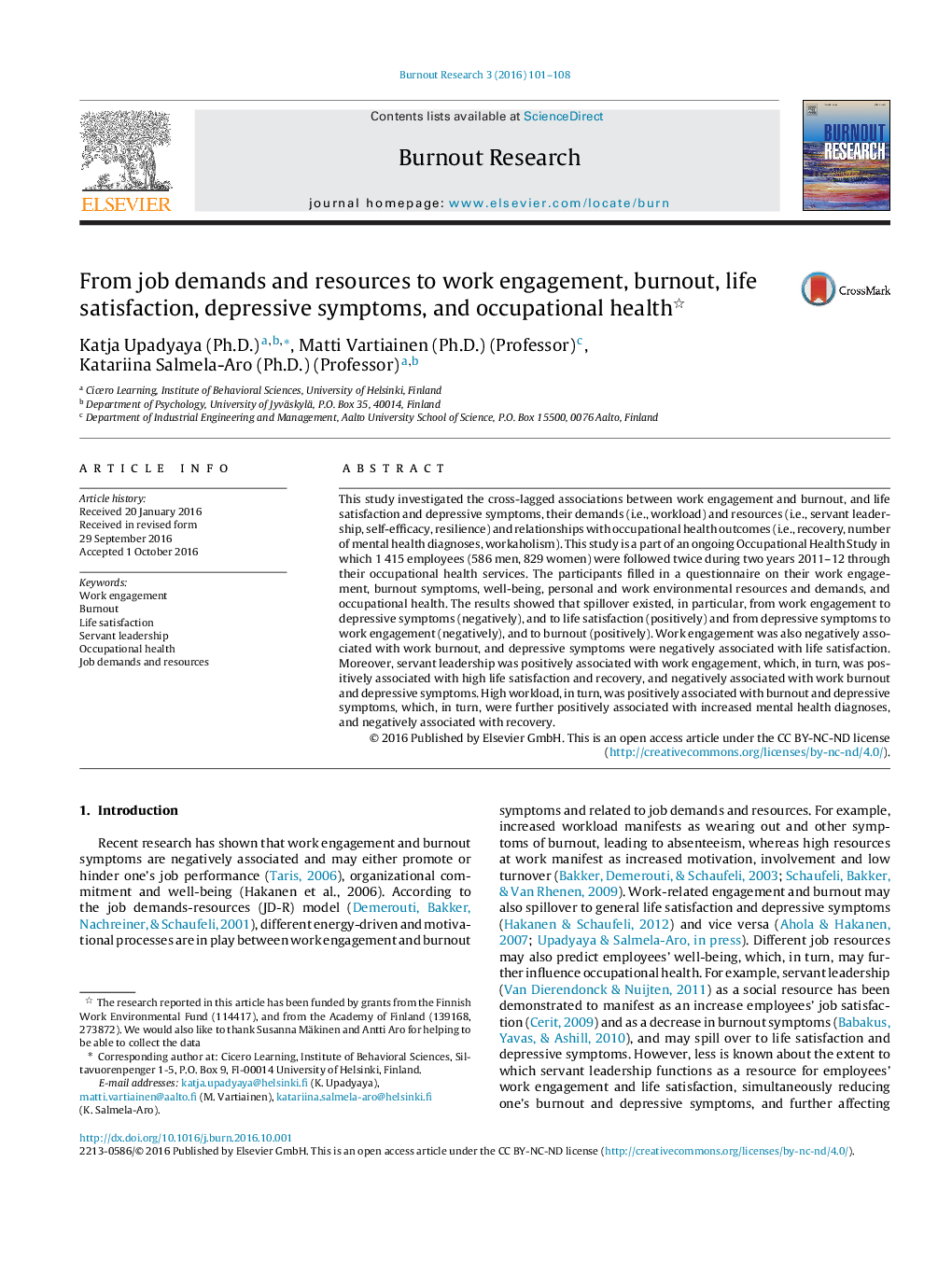| کد مقاله | کد نشریه | سال انتشار | مقاله انگلیسی | نسخه تمام متن |
|---|---|---|---|---|
| 4930031 | 538138 | 2016 | 8 صفحه PDF | دانلود رایگان |

- Work engagement spills over to context-free well-being and ill-health.
- Depressive symptoms spill over to work engagement and burnout.
- Servant leadership promotes work-specific and general well-being.
- Servant leadership buffers against the negative impact of workload.
- Positive and negative gain cycles exist between work and general well-being.
This study investigated the cross-lagged associations between work engagement and burnout, and life satisfaction and depressive symptoms, their demands (i.e., workload) and resources (i.e., servant leadership, self-efficacy, resilience) and relationships with occupational health outcomes (i.e., recovery, number of mental health diagnoses, workaholism). This study is a part of an ongoing Occupational Health Study in which 1 415 employees (586 men, 829 women) were followed twice during two years 2011-12 through their occupational health services. The participants filled in a questionnaire on their work engagement, burnout symptoms, well-being, personal and work environmental resources and demands, and occupational health. The results showed that spillover existed, in particular, from work engagement to depressive symptoms (negatively), and to life satisfaction (positively) and from depressive symptoms to work engagement (negatively), and to burnout (positively). Work engagement was also negatively associated with work burnout, and depressive symptoms were negatively associated with life satisfaction. Moreover, servant leadership was positively associated with work engagement, which, in turn, was positively associated with high life satisfaction and recovery, and negatively associated with work burnout and depressive symptoms. High workload, in turn, was positively associated with burnout and depressive symptoms, which, in turn, were further positively associated with increased mental health diagnoses, and negatively associated with recovery.
Journal: Burnout Research - Volume 3, Issue 4, December 2016, Pages 101-108